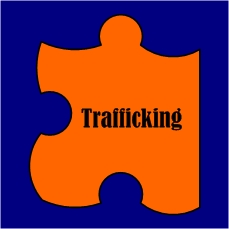China: For Adoptive Parents, Questions Without Answers

The article For Adoptive Parents, Questions Without Answers [New York Times 9/16/11 by John Leland] is about “the latest in a slow trickle of reports describing child abduction and trafficking in China, swept through the tight communities of families — many of them in the New York area — who have adopted children from China. For some, it raised a nightmarish question: What if my child had been taken forcibly from her parents?”
The whole article is a must-read. Some excerpts are below:
Wall of Silence
“Adoptive parents and adoption agencies have powerful incentives not to talk about trafficking or to question whether a child was given up voluntarily, especially given how difficult it is to know for certain. Such talk can unsettle the children or anger the Chinese government, which might limit the families’ future access to the country or add restrictions to future adoptions. And the possible answer is one that no parent wants to hear.
Most parents contacted for this article declined to comment or agreed to speak only on the condition of anonymity. Several said they never discussed trafficking, even with other adoptive parents. To a query from The New York Times posted on a Web forum for adoptive parents, one parent urged silence, writing, “The more we put China child trafficking out there, the more chances your child has to encounter a schoolmate saying, ‘Oh, were you stolen from your bio family?’ ”
Head in the Sand
“Many parents simply never have suspicions. Tony X. Tan, an associate professor of educational psychology at the University of South Florida whose research specialty is adoption, surveyed 342 adoptive parents of Chinese children last month. Two-thirds said they “never” suspected that their children might have been abducted, and one in nine said they thought about it “sometimes.” Several said the paperwork from the orphanages was inconsistent or suspicious.
One mother, who adopted two girls from different provinces, wrote, “My Guangxi daughter was adopted with a group of 11 other infants, all roughly the same age, and came home with an extremely detailed description of her first 11 months of life in her orphanage. Yet ‘her’ information was word-for-word the same as the info given the families of the other 11 children adopted at the same time — making it all too specific to be believable.”
“BRIAN STUY, an adoptive father of three in Salt Lake City, runs a service called Rto help adoptive families learn about their children’s origins. When he has managed to contact birth parents, he said, most were content to learn that their children were alive, that they were healthy and in good homes. “Unfortunately, the reaction of most adoptive parents is to go into hiding,” Mr. Stuy said. “When they have suspicions, they don’t want to come forward.”
Refreshing Truth
“Such reticence infuriates people like Karen Moline, a New York writer and a board member of the nonprofit advocacy group Parents for Ethical Adoption Reform, who adopted a boy from Vietnam 10 years ago. “If the government is utterly corrupt, and you have to take an orphanage a donation in hundred-dollar bills, why would you think the program was ethical?” she said. “Ask a typical Chinese adoptive parent that question, and they’ll say, my agency said so. My agency is ethical. People say, the paperwork says X; the paperwork is legitimate. But you have no idea where your money goes.
“Now you have to give $5,000 as an orphanage fee in China. Multiply that by how many thousand adoptions. Tens of millions of dollars have flowed out of this country to get kids, and you have no accounting for it.”
Update: There have been several rebuttals and followups to this article in different places in addition to many comments to the article itself.
We have found the following:
Dr. Jane Aronson’s take on September 20, 2011 is at The Huffington Post entitled The Trouble With International Adoption Is not Trafficking: It’s the Global Orphan Crisis. Comments are interesting with many challenges coming from adult adoptees. Those are must-reads. One comment in particular stands out from Spence Chapin Adoption Agency (located in New York) who apparently has received “numerous” calls from concerned adoptive parents. Yes, this is only the beginning. Adoptive parents should question and analyze very closely what agencies are saying. Do not take them at their word. There is future business on the line for them.
Her opinion brushes aside child trafficking issues and with one foot in adoption world and one foot in humanitarian aid, therein lies a conflict of interest. You need to go below these surface platitudes to understand how things really operate in these countries and “ethical” is not the description that comes to mind.
PEAR reports that one of its Board members, Karen Moline, also quoted in the article, appeared on MSNBC on Tuesday September 20, 2011.
Author EJ Graff responds directly to Dr. Aronson in a blog post on September 22, 2011 at The American Prospect entitled Adoption is Not Solution for Poor Chlidren. WE AGREE with that title. Helping and parenting are two separate things.
Brian Stuy, also quoted in the article, had a letter to the editor published on September 22, 2011 in which he talks about child buying aspect in addition to the kidnapping aspect of China adoptions.
REFORM Puzzle Piece


Recent Comments